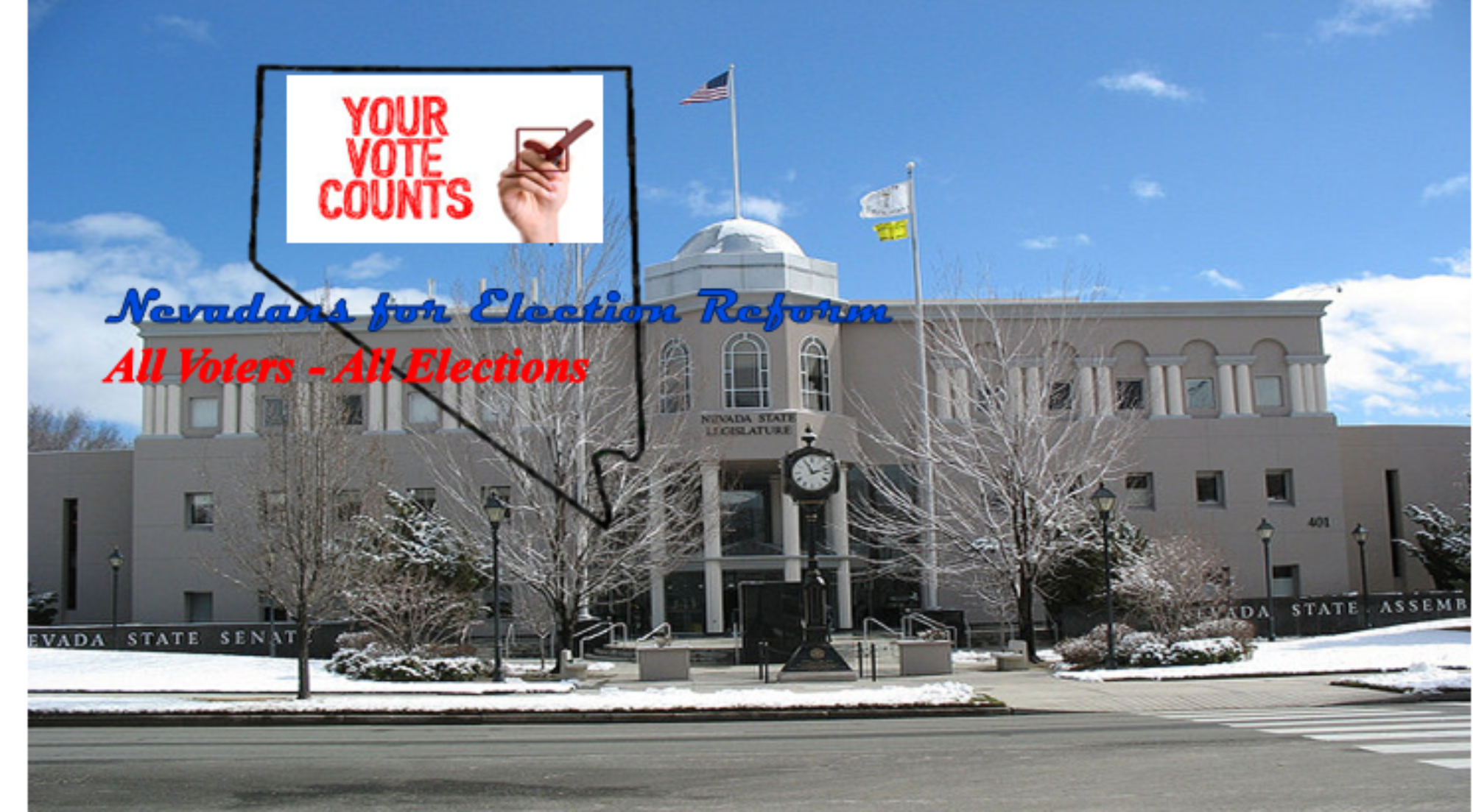While meetings with legislators and applicable organizations continue, it’s time to go public. Lawmakers have expressed interest but to get a bill filed it will take people letting legislators know modernization and reform of Nevada’s voting system is something they want now.
Randi Thompson, columnist for the Reno Gazette-Journal kicked things off on Sunday, May 25th. Articles have been published on IVN and Voices.us and a press release (below) has been sent to many media outlets.
The task of getting these changes passed and signed into law is not easy by any stretch of the imagination. Most legislators and groups I have met with believe this is an interesting proposal worth studying. A big part of this “studying” is hearing from the voters. Working together; voters, legislators, and interest groups, we can and will be successful for the benefit of the entire state.
PRESS RELEASE
Since September of last year, meetings with state legislators, civil liberty, voting rights, and business groups, legislative caucus leaders, and election officials have taken place to determine if a proposal to modernize and reform Nevada’s election process, making it the most inclusive in the nation, could be introduced in the 2015 state legislative session. Most found it worthy of discussion. Some expressed real interest. Phase II, raising public awareness of this proposal and getting their involvement to make it happen has begun. http://www.rgj.com/story/opinion/columnists/2014/05/25/randi-thompson-time-election-reform/9567479/
Changes to both the primary and general elections are necessary. The process is not complicated. The primary would list all candidates for each office, regardless of party affiliation or status as a non-partisan, on the same ballot. All voters, regardless of party affiliation or status as a non-partisan would get to vote. This makes sense since our tax dollars, not the political parties, pay the nearly $4 million dollars it costs for each primary. The top three finishers advance to the general election unless one of the candidates gets at least 50%+1 of the votes in which case that candidate is elected. If three or less candidates run all move to the general election. Both these events could reduce campaign costs. Analysis of voter turnout from 2008 – 2012 shows a potential for significant increase in primary election voter turnout.
The general election would be conducted using Ranked Choice voting, also known as Instant Runoff voting. This process is used in several cities with overwhelming voter acceptance. It guarantees the winner receives a true majority, at least 50%+1 of the votes cast, eliminating plurality winners. This is possible because voters would vote for both their first and second choice. If no candidate gets a majority of first choice votes, second choice votes for the top two are added in.
Studies show open blanket primaries draw candidates closer to the median voter. Having more ideas and solutions debated early in the election cycle benefits all candidates regardless of party and the electorate.
Elected officials like to say they were elected with a mandate simply because they won. Many times though, victory was only with a plurality. Under this proposed system, the result is a true majority, at least 50% + 1 of the votes cast. A claim of a mandate is justified. There is a benefit to voters as well. Many times a voter will face an internal conflict; vote for the preferred candidate or succumb to “I don’t want to waste my vote” syndrome. This conflict is resolved by the use of a second-choice vote.
There are other advantages. Every vote matters so citizens who believe their vote has no impact can return to the polls. Because candidates are drawn closer to the median voter, political parties could regain some of the membership they have lost and continue to lose. And having the most inclusive voting system in the nation could make a difference to companies looking to bring jobs to Nevada.
